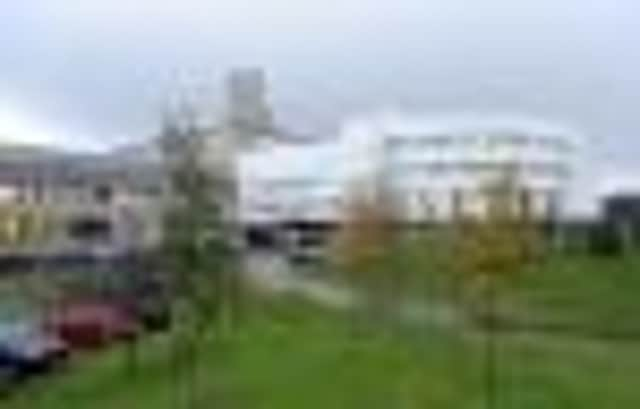Deaf patient denied interpreter by Dundee Hospital


The female patient who had been admitted to Dundee’s Ninewells Hospital for surgery to have her appendix removed had a very limited lip reading ability and did not have a good understanding of written English.
And it was “impossible to say” with any certainty whether the deaf patient had given informed consent for the surgery,
Advertisement
Hide AdAdvertisement
Hide AdJim Martin, the Scottish public services ombudsman, has ruled that NHS Tayside failed to adhere to the board’s informed consent policy and found that the failure to obtain a sign language interpreter for the patient was “unacceptable”.
He states in his report that a complaint had been raised on behalf of the patient, known as Ms A, that the board failed to provide a British Sign Language (BSL) interpreter during her 12-day stay at Ninewells where she had been admitted for surgery to remove her appendix.
Ms A was a BSL user with very limited lip-reading ability. She did not use verbal communication and did not have a good understanding of written English.
Mr Martin states: “Although hospital staff took steps to try to communicate with Ms A, at no point did they provide an interpreter. This was despite Ms A repeatedly pointing to a poster on the wall, which was for interpreter services, and handing staff a BSL interpreter’s card on two separate occasions.”
He continues: “In the course of my investigation I took independent advice from my equality and diversity adviser and a medical adviser. The equality adviser said that staff had not taken reasonable and appropriate steps to obtain a BSL interpreter for Ms A in line with their legal duty to do so under section 20 of the Equality Act 2010. She said that once they had been alerted to Ms A’s need for a BSL interpreter, a clear plan should have been drawn up to try to coordinate the availability of doctors and others communicating with Ms A and a BSL interpreter, sufficiently trained to be able to communicate complex medical issues.”
“Sufficient attempts”
Two calls had eventually been made to the interpretation service but these were both made at the weekend and were unsuccessful.
Mr Martin states: “I asked the medical adviser about the issue of consent. He said that it was impossible to say for sure if Ms A gave informed consent for the operation, but the failure to obtain an interpreter certainly cast doubt on this.
“It is clear to me, however, that that by failing to obtain an interpreter, the board did not adhere to their Informed Consent Policy.”
Advertisement
Hide AdAdvertisement
Hide AdMr Martin accepts that there is both a national and local shortage of registered BSL interpreters. But he continues: “I do not consider that hospital staff made sufficient attempts to try to obtain a BSL interpreter for Ms A, despite the fact that it had clearly been noted that that Ms A needed an interpreter and that her method of communication was sign language.
“It was clear from the records that that Ms A felt isolated due to being deaf and not being able to communicate. Ms A’s notes stated that an interpreter was to be contacted at the family’s request.
“I consider that it was unacceptable for the board not to obtain BSL interpretation for Ms A during her admission and I therefore upheld the complaint.”
He recommends that the health board revise its interpretation and translation policy to highlight the legal duties staff have, and to explain that “using lip-reading and pen and paper is not likely to be an adequate or reasonable response to the needs of a BSL user.”
Changes
A spokesman for NHS Tayside said: “NHS Tayside has developed the Tayside Deaf Forum in partnership with members of the deaf community and local deaf action groups with an aim to improving the services provided for those who are deaf or hard of hearing. For the past two years, regular quarterly meetings have taken place with the Tayside Deaf Forum.
“In response to the Ombudsman recommendations and as a result of the meetings held by the Tayside Deaf Forum, several service changes have been put in place.
“Improvements have been made in the way that British Sign Language (BSL) interpreters can be booked for deaf patients including allowing patients to book their own interpreter directly and the trialling of an online interpretation service for patients in GP surgeries.”
She added: ““Last year NHS Tayside introduced the use of Patient Interpretation Cards which can be carried by those patients who require help with translation services to alert healthcare staff. Posters are also in place in all clinical areas explaining how to book an interpreter for a patient. “NHS Tayside staff are also undertaking training in BSL and in identifying and supporting patients who require help with translation.”